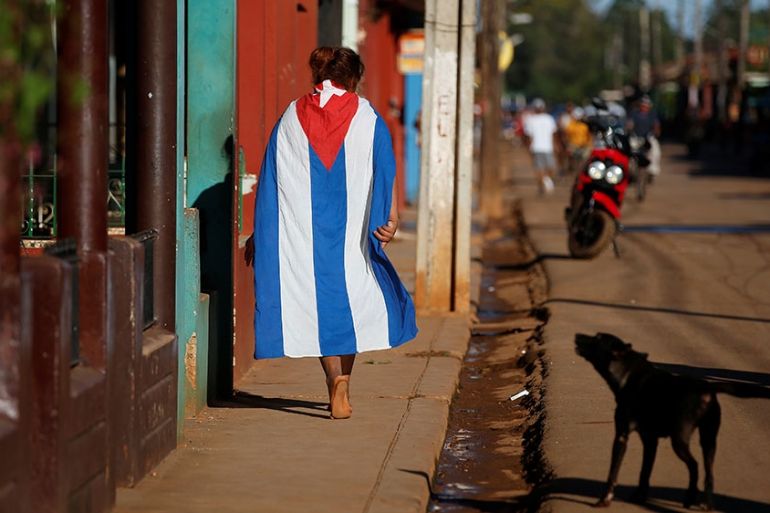Brazil for 1st time votes against call to end US embargo on Cuba
UN General Assembly still overwhelmingly adopts resolution condemning Washington’s economic embargo on Havana.

Brazil voted for the first time with the United States on Thursday against an annual United Nations resolution condemning and calling for an end to Washington’s economic embargo on Cuba, while Colombia and Ukraine abstained.
The 193-member General Assembly still overwhelmingly adopted the resolution for the 28th year with 187 votes in favour. US ally Israel also voted no and Moldova did not vote. The UN vote can carry political weight, but only the US Congress can lift the more than 50-year-old embargo.
Keep reading
list of 3 itemsUS slaps new sanctions on Cuba over human rights, Venezuela
Cuba to pull doctors from Brazil after Bolsonaro threats
The policy shift by Brazil represents the latest attempt by President Jair Bolsonaro to draw closer to US President Donald Trump since taking office in January but runs against the interest of some large Brazilian firms.
Brazil’s Souza Cruz Ltda, owned by British American Tobacco PLC has a joint venture in Havana that makes most of the cigarettes in Cuba.
Traditionally, Brazil has objected to how the US applied its domestic politics to foreign policy, punishing companies from countries that trade or invest in Cuba.
Colombia’s abstention follows a chill in its relations with Cuba.
Cuba once hosted peace talks between Colombia and its National Liberation Army (ELN) rebel group, but Havana’s refusal to extradite three rebel commanders after negotiations broke down has led to repeated criticism from the government of President Ivan Duque.
Colombia abstained from the vote because of Cuba’s “hostile attitude” towards its extradition requests for the “confessed terrorists” and its support for Venezuelan President Nicolas Maduro, the foreign ministry said in a statement.
Relations deteriorate under Trump
The US consistently voted against the UN resolutions for 24 years but abstained for the first time in 2016 under former President Barack Obama, as Washington and Havana forged a closer relationship.
Relations have deteriorated sharply under Trump, returning to Cold War characterisations of Cuba and tightening trade and travel restrictions that had been eased by Obama.
“The United States is not responsible for the Cuban regime’s endless abuses of its people,” US Ambassador to the UN Kelly Craft told the General Assembly before the vote.
“It is our first responsibility as leaders to defend those without a voice, today, most especially the people of Cuba. Shame be upon us if we refuse to raise our voices in defence of theirs,” Craft said.
Last year, the US proposed eight amendments to the resolution to push Cuba to improve its human rights record, but all of the proposals failed.
Cuban Foreign Minister Bruno Rodriguez rejected US criticism of Cuba’s human rights record, accusing Washington of manipulating “human rights for political purposes and we reject double standards”.
“The US government does not have the slightest moral authority to criticise Cuba or any other country when it comes to human rights,” he told the UN General Assembly, citing an opioid crisis, gun violence, poverty and unemployment in the US.